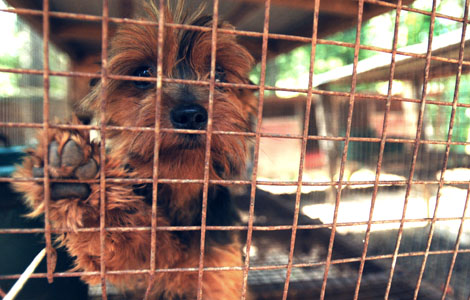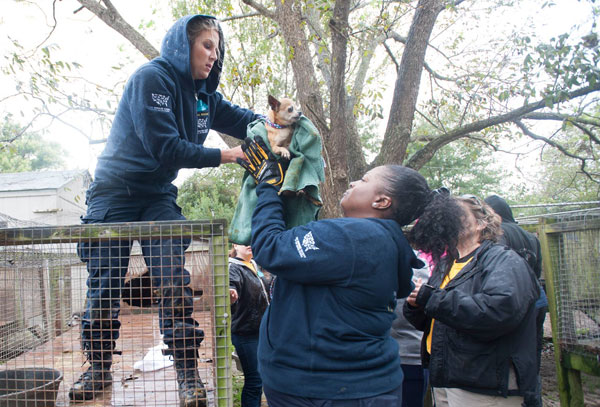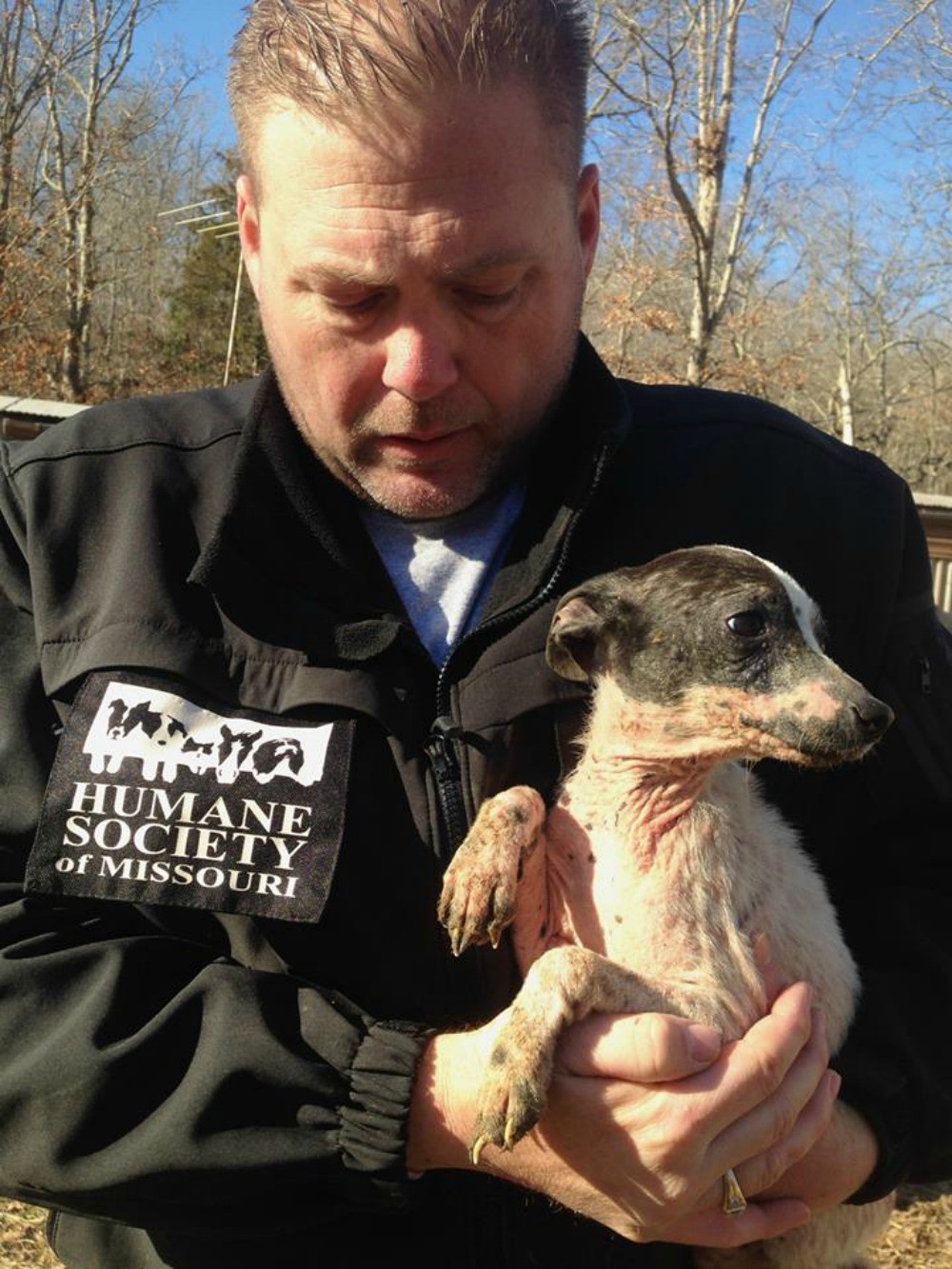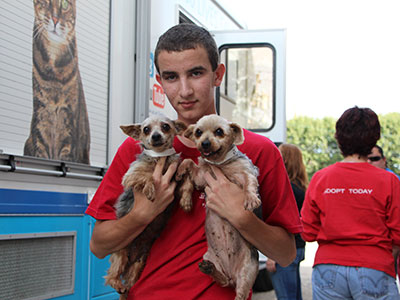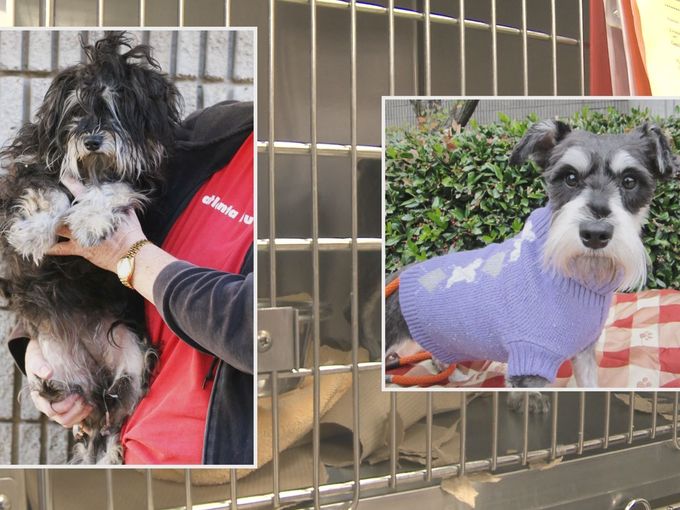What are Puppy Mills?
Puppy mills are commercial breeding facilities that mass-produce dogs for sale through pet stores, or directly to consumers through classified ads or the Internet.
In most states, commercial breeding kennels can legally keep hundreds of dogs in cages for their entire lives, for the sole purpose of continuously churning out puppies.
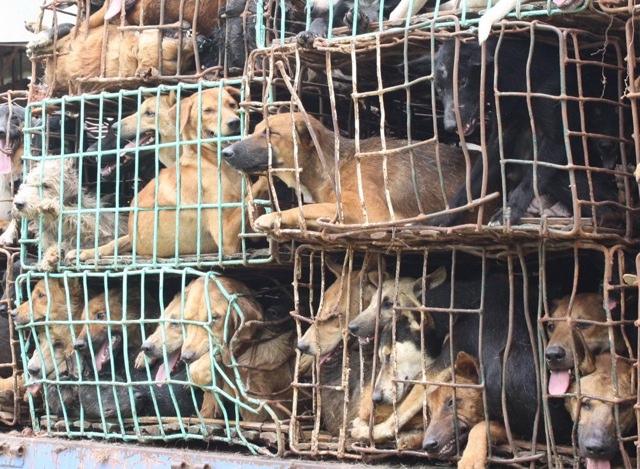
Dogs suffering in puppy mills live in horrid conditions; often jammed into crates with other dogs, while those crates are stacked onto more crates. Their crates are poorly kept, forcing puppies to live in their own feces.
Thankfully, places like the National Mill Dog Rescue, Northshore Animal League, and the Humane Society have made it their mission to save dogs from these sort of horrible situations, provide them with appropriate medical attention, give them love and attention, and find them forever homes.
Click ‘Next Page’↓ to see these amazing rescue stories
On January 22nd, 2015, The Washington County Sheriff’s Office and the Humane Society of Missouri Animal Cruelty Task Force rescued 55 neglected and undernourished Jack Russell terriers from a property in Washington County.
Authorities confirmed there was no veterinary care, nor food or water available to the dogs, and were witnessed living in their own feces and urine. The owners of the property do not have a breeders license.
All of the dogs have been removed and were examined and treated by veterinarians for the Humane Society, and were put for adoption after receiving the necessary medical care and rehabilitation.
North Shore Animal League and the National Mill Dog Rescue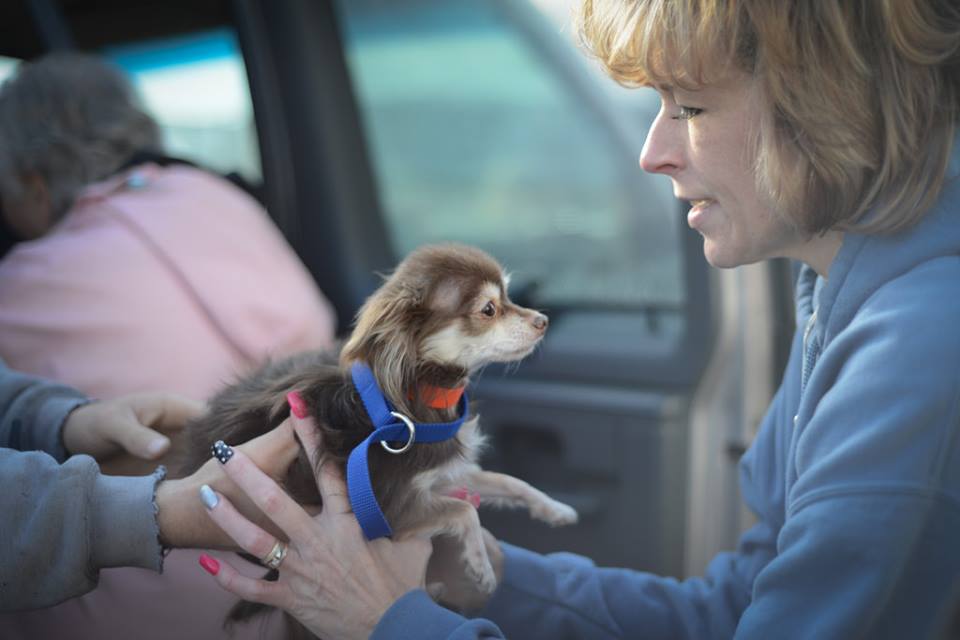
On February 2nd, 2015, National Mill Dog Rescue’s “Operation: Hundred Hearts” was able to save 101 dogs from life in puppy mills.
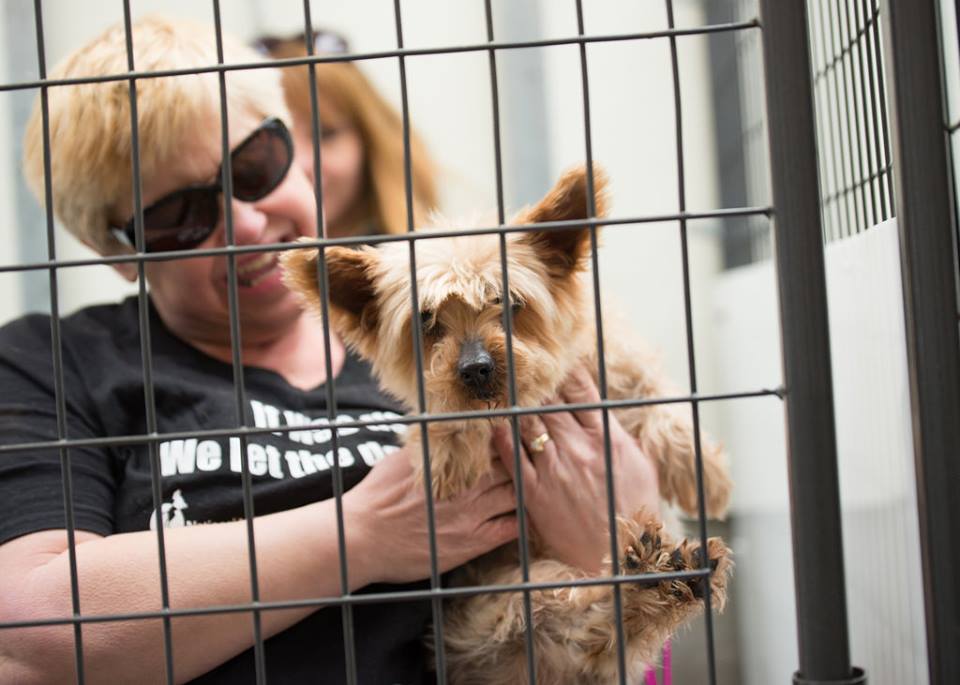
Operation: Hundred Hearts took place over the course of two days. In just three vehicles, eight rescuers set out to drive over 2,000 miles to rescue pups from puppy mills in three different states. Most of the dogs who were rescued have never known life outside of a small wire cage.
It began on Friday, July 18 a carefully planned 1,500-mile trip from the Midwest that had come off without a hitch, thanks to Miranda Lambert and her outstanding group, MuttNation Foundation. 80 small and medium sized puppy mill rescues were taken to the Northshore Animal League and started to get a taste of what it means to be cared for, for the first time.
Click HERE to find out what YOU can do to join the fight against puppy mills.
What can YOU do to stop puppy mills? Educate yourself, spread the word and adopt, don’t shop!!
- There are two primary sales outlets for puppies bred in puppy mills: (1) pet stores, and (2) the Internet.
- Puppy mills are all about profits. Any money spent on veterinary care, quality food, shelter, or staff to care for the dogs cuts into the profit margin.
Join the fight to stop puppy mills, and adopt your next animal, don’t shop! - Mothers are bred every heat cycle and are usually killed when they can no longer produce
- Don’t be an impulse buyer. A puppy might look cute in the window, but once you take him home you could end up with a lot more than you bargained for. With a reputable breeder, you might have to wait for a puppy to be born or to grow old enough to take home, but he health guarantees are worth it.
- Know your state’s dog breeding and selling laws. If you have a puppy from a puppy mill, know how to protect yourself and enforce the laws that are already on the books. Start here: www.animallaw.com
- Support organizations that act as watchdogs over breeders. This can either be with your money, time (volunteering for shelters and rescue groups) or talents (writing letters, organizing events, vaccination programs):American Society for the Prevention of Cruelty to Animals (ASPCA) –http://www.aspca.org/Animal Welfare Institute – http://www.awionline.org/Animal Defense Fund – http://www.aldf.org/
- Report incidences. If you know of an unethical or abusive breeder or puppy mill operator in your area, tell your local animal law enforcement agency. Follow up if necessary.
- Speak out! Tell you friends, family and social networks about the dangers of puppy mills. Education is the best solution for most any wrong.

